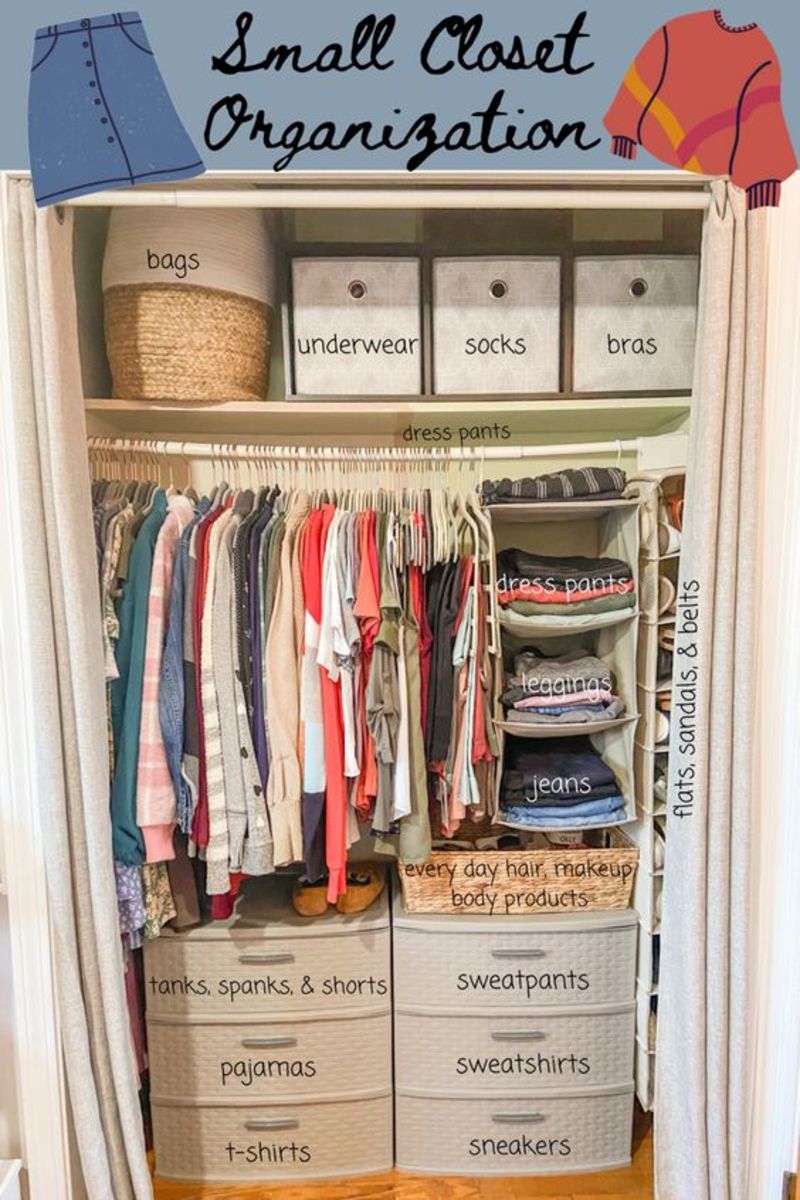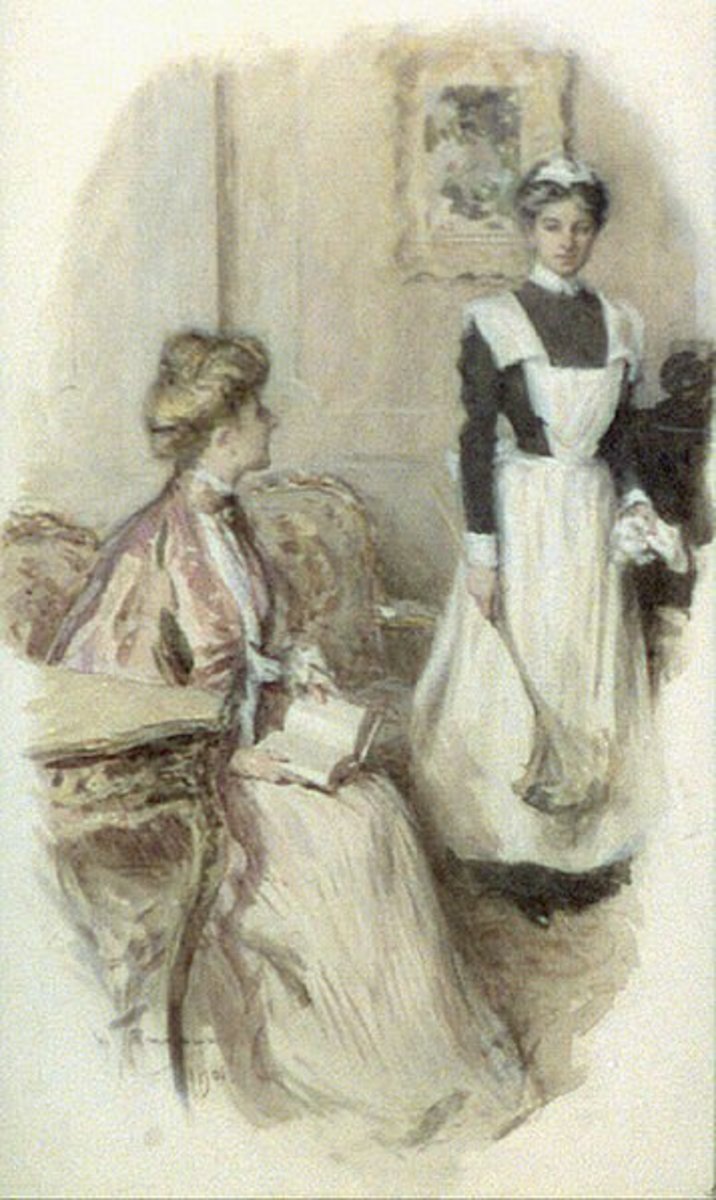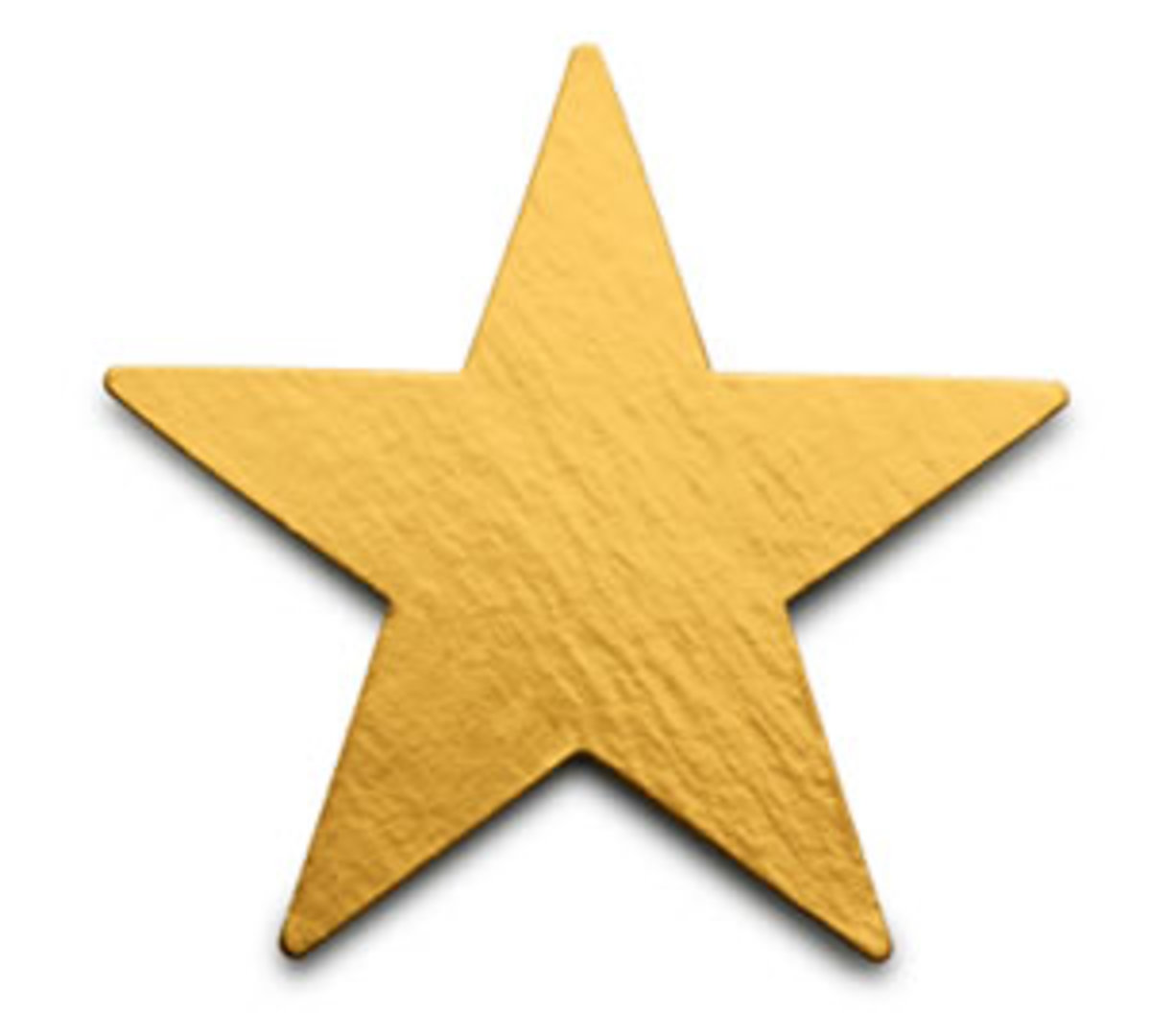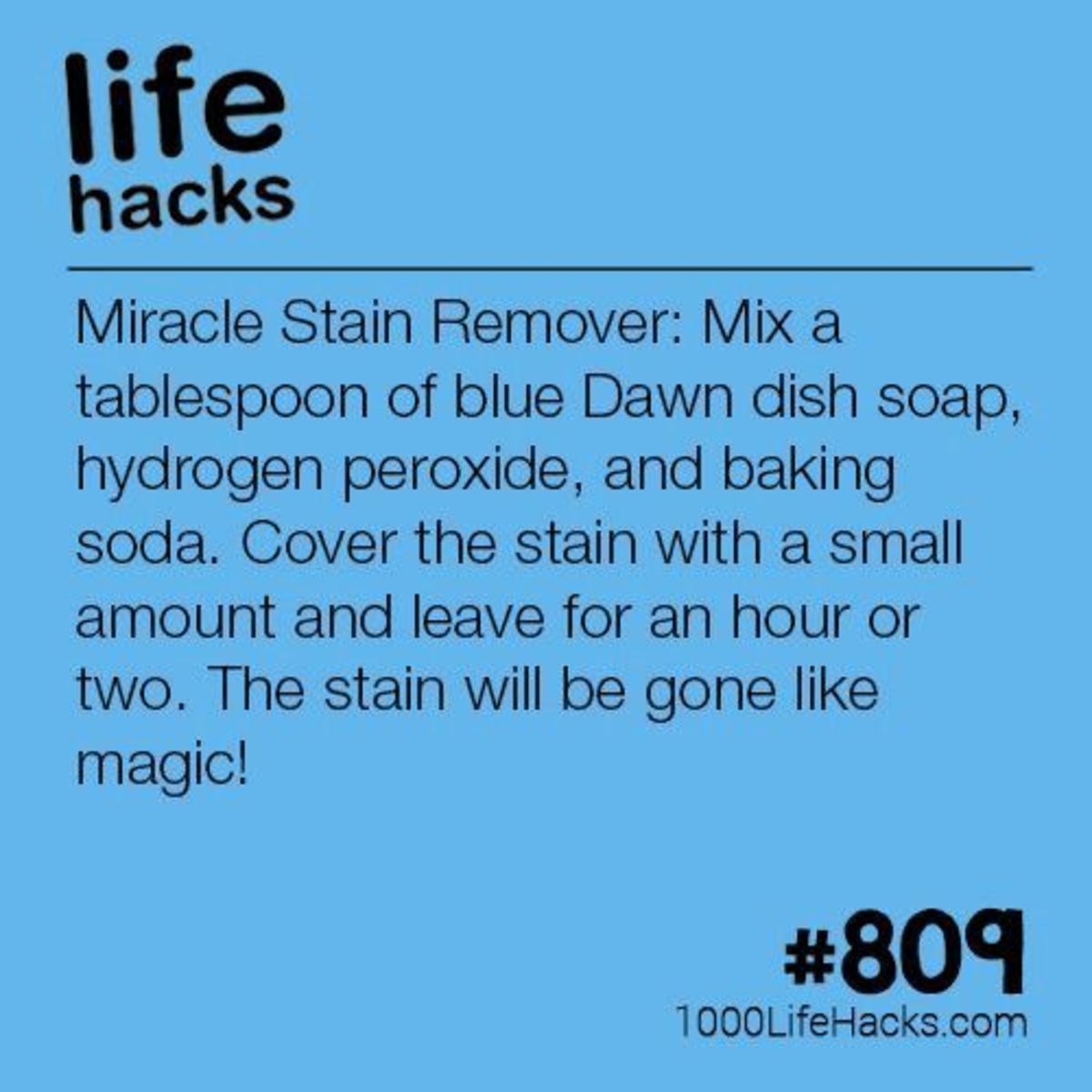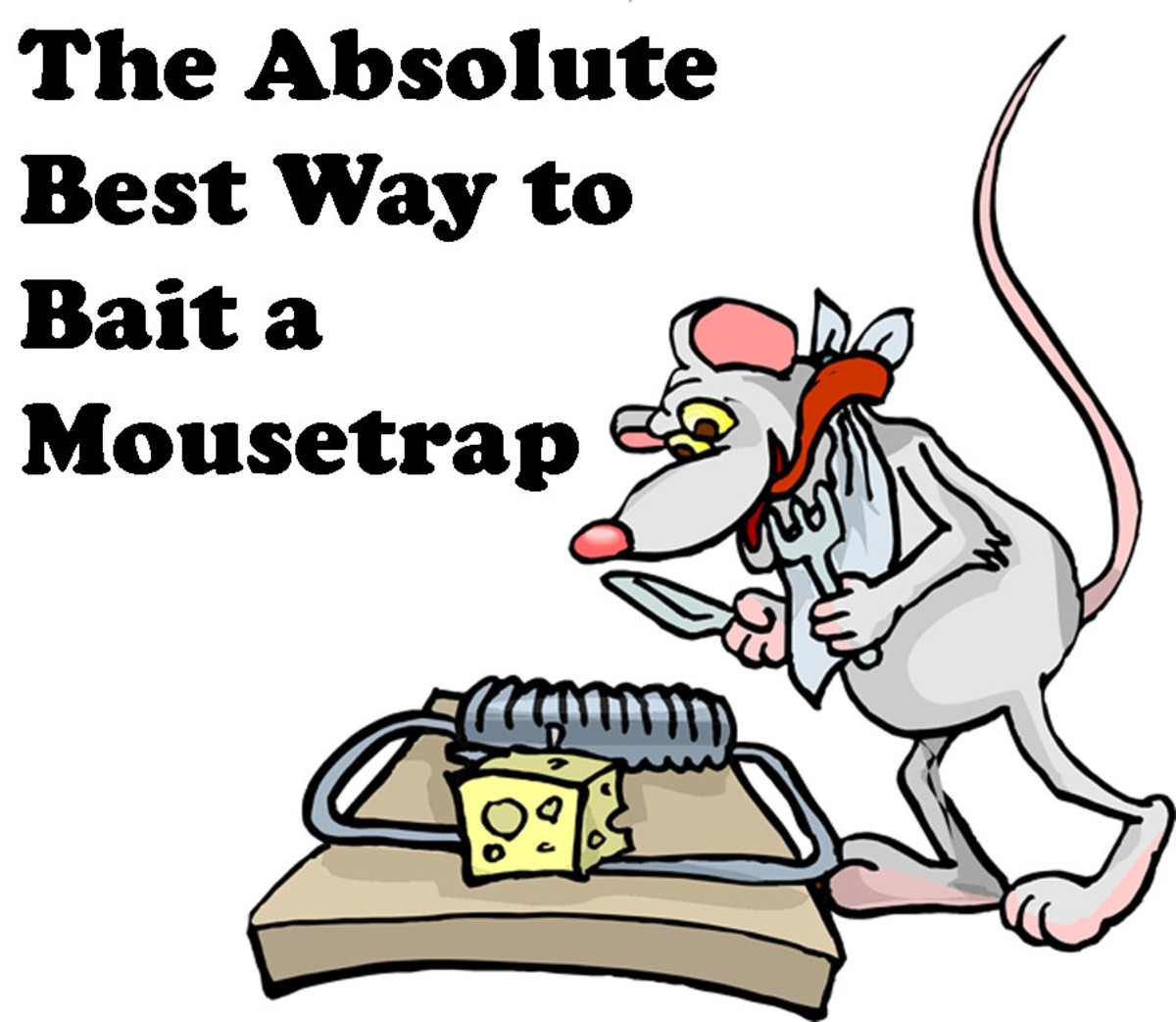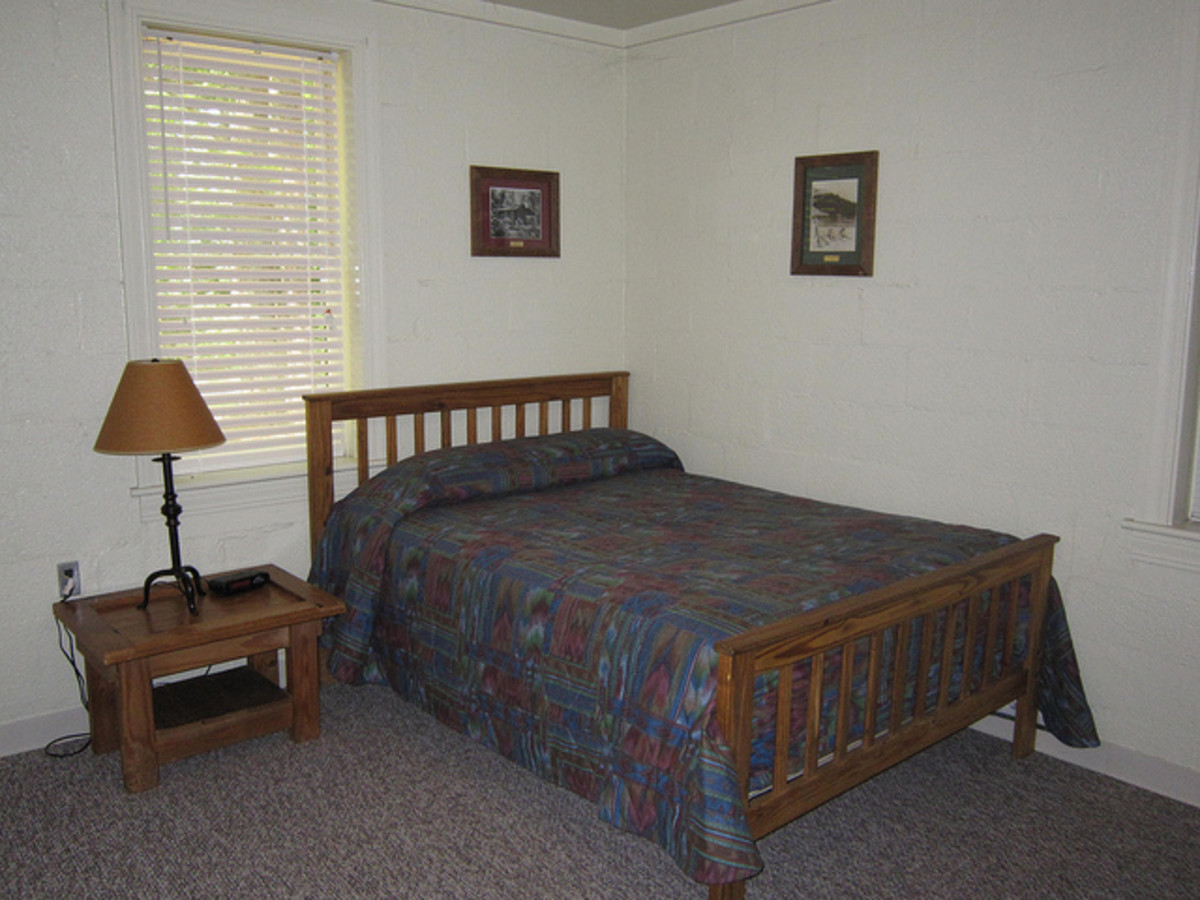Organizing with OCD
Ways to organize with OCD.
Many of you may wonder why I would write an OCD guide to organization when I don't have OCD.
First off let me say that I have been a caregiver for years working in several environments from nursing homes to home healthcare. For the last 6 years I have worked with a lady with OCD. I will call her Jill. When I met her she lived in a two bedroom apartment filled with boxes and she rented two large storage units filled with stuff. Mind you that she is disabled having injured her back several years ago as well as suffering from OCD and living on a tight budget of Social Security income. She can walk short distances but often uses a motorized scooter or walker to get from place to place.
The sad part about it all was is that one of the garages was filled with a friends (Cate) stuff. Cate had a hard life and was now living on the streets having lost much of her life belongs except for those that lay in Jill's garage. I was sad that Jill wanted to help people so much that she sacrificed so much of her own money, time and energy to do it. Cate had never helped Jill to pay the monthly fee for the garage and never even came down to try and consolidate what she had in it. Jill was paying $60 a month for two years for this women to keep her stuff.
With my help Jill finally felt ready to tackle Cate's storage unit and try to find a way to condense the contents into one storage units. The boxes filled the garage reaching the ceiling and all the way back. This unit was bigger than the dimensions of the apartment I lived in at the time. We looked through box after box after box. My sadness grew as I saw phone books, broken items and tissues filling these boxes. None of it was worth saving and it had been sitting in this garage for two years untouched. After we finally managed to clear out that garage there were only 10 or so boxes of anything worth keeping. We must have sorted through hundreds of boxes.
However, I do believe there was some lesson from all that time and effort. Jill began to trust others to help her with sorting and to understand how similar her clutter must seem to what she had sorted in Cate's garage. If Cate had a garage full of junk maybe Jill could part with some of her stuff, too. It has been a slow process but we have cleared out both garages saving her $120/mo in extra expenses. Her apartment still has a ways to go but the process has begun and her motivation is keeping her on track and so far she has only slipped a little in her progress. .
I hope this story and the advice I give will help you to clear your life of the things that hinder your growth and to help you find your home as a calm and organized place.
Good Luck to you all.
What does organization mean to you?
Although this might seem like an easy question, it is very important to find the root of what you find appealing in a space. Some people prefer to have decorations and bright vibrant walls while other would like their space free of any clutter at all with mute wall tones. There is no wrong answer but the question will give you a better idea of the direction you want to take to meet your goal rather than simply making an organized system that will never work with your needs and wants.
Pick a few goals for organization that are important to you:
-Clean (no dust or grime, free of germs, bright colors that look new)
-Out of sight (Clutter is in a place that can't be seen)
-Beautiful (lovely decorations, good presentation of space)
-Calm (makes you and other feel relaxed)
-Easy to find (makes sense where to find different items)
-Inspiring (filled with quotes or artwork that makes you feel good)
-Efficient (very easy to switch tasks, meant to serve a certain function)
-Please others ( meant for the purposes of others, tasteful to others)
-Create a mood (Use of color, lighting and fabrics to set a tone to the room)
-Make more room ( Store more in less space or find a way to consolidate your items
-Live more simply (lessen your material possessions, free from clutter)
-Free of distractions (increase productivity, function and get work done)
---Books on Organization---
What it takes to be organized
You have to train yourself to be organized. It isn't something that always comes naturally and each individual is different. There are many ways to approach the organization process. Not all of these methods will work for you. Use your goals list from above to help answer these questions.
Answer some Questions:
-Why do you want to get organized?
-How will being organized improve your life?
-What barriers stand in your way to organization?
-Do you have supports on your side? (friends, family ,etc..)
-How does disorganization negatively impact your life?
-What areas are a priority to organize?
-When can I work on this organization plan? (Schedule it in)
Now that you know what to organize and the functions you want the space to serve you can now think more in depth about the places that make you feel good, calm and energized. In certain spaces anyone can have negative feelings that will drain your energy, slow your progress and in general make it difficult to focus and achieve a goal. It is incredibly important to find out not only what triggers can make you feel stressed, anxious, depressed, obsessive or compulsive but also to find environments that really inspire and give you energy.
FIND A SPACE
First, set aside time to find just one space in your home where you can feel comfortable in starting your journey to organization. Make the space as inviting and comfortable as possible free of distractions. This space could be a desk, chair, table or bed. It could even be outside if that suits your needs. Use the list below to help find and make your space the most comfortable.
Think of a room real or imagined where you would feel the most at ease:
-What is in the space? (furniture, plants, etc..)
-What colors would you use on the walls? ( red, tan, blues)
-What kind of lighting? (florescent, outdoor, candles, christmas lights, etc..)
-What sounds would you hear? (music, birds chirping, rushing water, etc..)
-What would you feel? (carpeting, hard wood floors, velvet or cotton upolstery)
-Are there sentimental items that would help complete the room? ( antiques, photos, etc..)
MAKE IT COMFORTABLE AND FUNCTIONAL
If the space is not comfortable to begin with add lighting, fabrics, photos or anything else that will inspire and give you energy.Make sure you add any essentials you need when sorting such as boxes, trash can, recycle can, paper and pen to write notes, folders, baskets, etc.. When the space is ready it will make sorting easier and less stressful allowing you to focus all your energy to the task at hand. If it is possible turn off your phone, timers, radio, email alerts or anything else that will take away from your focus. If you need some noise to help you work something like white noise, nature sounds or the sound of rushing water may help. Keep a list of your goals handy so you can remind yourself of your end goal.
*** If you really can't find a single place in your home that feels relaxing then schedule time at a local restaurant, library or friends/family's house to start writing your goals and plans for action. Define the space you want and where in your home you could add this space. Even if you need to put a bunch of items unorganized in boxes to make this space it is important for your end goal to follow through.***
STARTING SMALL AND WORKING UP
By making this personal space to work on organizing you have achieved your first goal and given direction to your future goals for organizing. It is best to start small and work your way up. If you started in a space then work up to a room and eventually the whole house. Don't forget to go back to touch-up the cleaning in the rooms you started on.
Pinterest as a tool for organizing
Pinterest can be a very useful tool for creating a vision of your goals for your home. Each board can represent different goals and can give you not only ideas for your own home but also some visual elements to work with that may have a place to be added into your home. There are many diy projects that can help with organization if you only take some time to look.
Understanding Obsessive Compulsive Traits
How to know if you or others have OCD?
Obsessive Traits
-Recurring and persistent thoughts/impulses that disrupt daily activities .
-These thoughts cause stress and/or anxiety
-These thoughts are generated by ones own mind
-The person unsuccessfully tries to control/suppress the thought with other action/thought.
Compulsive Traits
-Repetitive actions or thoughts a person does in response to an obsession.
-The acts and/or thoughts are meant to prevent or reduce stress in some way
-The acts and/or thoughts are more excessive than needed to reduce the stressor.
Additional Traits
-The person is distressed by these thoughts and behaviors
-The thoughts and behaviors negatively effect the person daily lifestyle.
-The thoughts and behaviors take a significant amount of time.
-There are no other known disorders with related symptoms
-These thoughts and behaviors are not caused by a drug or medication.
Take a quiz if you want to test if you or someone you know has OCD:
Have you ever been diagnosed with OCD?
Have you been diagnosed with OCD?
---Books about coping with OCD---
What causes OCD?
Obsessive Compulsive Disorder
There are many theories about the causes of OCD but most likely is some combination of the following theories with some environmental, biological and
Hereditary:
Environmental:
-Trauma: Although some research suggests there is no association between OCD and traumatic/stressful events. The cognitive model behind anxiety disorders suggests that stress can cause intrusive thoughts and increased obsession tendencies as seen with OCD.
-Family: Although the influence of family doesn't appear to directly cause OCD the way a family addresses the needs of a child with OCD can have lasting effects on how the child deals with stress in the future. When children show signs of OCD it is not uncommon for family members to comply and help with the child's behaviors as a way to help reduce stress for their child. While understandable, in many cases the symptoms worsen over time leading to more intrusive thoughts and behaviors later on.
-Injury: In cases involving head injuries many adolescents have developed OCD within a couple of years of the incident.
Biology:
One theory is that the caudate nucleus is unable to properly regulate the neurological impulses between the orbitofrontal cortex, anterior cingulate cortex, thalamus and Striatum. Without proper regulation the neurological signal is still transmitted even when the task or thought is already complete(for instance locking the door but checking again to see if it is locked).
Here are the functions of each brain region discussed:
The orbitofrontal cortex plays a large role in decision making.
The thalamus is a relay between different sections of the brain.
The caudate nucleus controls the threshold for certain neurological impulses in the brain.
The anterior cingulate cortex is important to the monitoring of conflict and errors.
The striatum is responsible to deciding and initiating a response to a stimulus.
Causes for OCD links:
-Causes for OCD by the Mayo Clinic
-Stanford University understanding OCD and related disorders
-Why do some people develop OCD?
Do you have OCD or CDO?
You may never completely overcome your OCD and that is OK but at least if you can make fun of it and be true to yourself then in the end you are better off than a lot of the normal people out there. Here are some humorous memorabilia poking fun at the OCD diagnosis based on alphabetical order ( it should be CDO).

People with OCD can also suffer from:
-ADD
-ADHD
-Anxiety disorders
-Phobias
-Depression
-Eating disorder
-Panic Attacks
-PTSD
-Mood disorders
-Autism Spectrum Disorders
Time Management
One way to stay organized is to make sure you put your time and effort into the most attainable goals. It is also important to determine the importance of each task and find ways to change several small tasks into a larger task.
-Set a time limit for the task (This way you feel productive and don't forget other tasks)
-Pick a time to do certain tasks (check your email or messages only at a certain time, etc...)
-Move it later (sort items that are going to a certain room together so you can make one trip)
---Lets Get Organized---
If a person is under even a small amount of stress whether or not they have OCD it effects their performance. Therefore, finding out what things are stressful is an important step for bringing your cluttered life under control. Listen to your needs and set a goal amount of time. Even 10 minutes of uninterrupted time can be more effective than all day multitasking.
Tips for reducing stress:
-Write a to-do list (this will help to clear your mind and bring focus to the current task)
-Set realistic goals (Keep your goals small/attainable in order to see your progress)
-Take care of your needs first (food, bath, nap, etc...)
-Clean and unclutter your work space ( temporarily clear off a space if needed)
-Do the most stressful things first (After bed/breakfast you are at your most rested state)
-Take breaks between tasks (After a small break you will be more productive and calm)
-Make it fun (If you can keep your concentration have a movie or song in the background)
-Don't forget breaks (Small focused time is much better than all day multitasking)
-Watch for the signs (Keep close watch of yourself and
-Exercise (It is a natural stress reducer and promotes good health)
What is the hardest part of staying organized?
I know it is a difficult task to sort through the years of accumulated stuff that has built up within your home. But take some time to look at the stuff for what it really is. How often do you really look at or use these items you keep for years. It will take time but eventually you can free yourself from an unorganized mess into a more manageable system for maintaining a clean and organized home. A home you can be proud to show off to your family and friends. All it takes is some time and motivation to change.
Tips for Letting Go when Organizing
-Take baby steps ( It will take time to get used to sorting and throwing it out, take your time)
-Ask for help (Encouragement helps a lot, you don't have to go it alone)
-Keep it organized (Sort out your stuff into many piles, use folders, boxes and labels)
-Learn to trust (Allow people you trust into your life so that they can help you organize)
-Take Pictures (If you have no use for an item but you want to remember it, take a picture)
-Keep Control (Don't let others push you to do more than you are comfortable)
There are many ways to sort out your papers some of which are intuitive and other methods that aren't so easy to see. I tend to file my papers based on month, however this method only works if you can later retrieve information using this system. You may have a lot more bills and important papers each month. Find ways to separate important from unimportant and when you need to see it again. If it is a bill you need it more readily available than a flyer or credit offer.
Ways to Sort
-Temporary (Coupons, Interesting to Read, To do lists, etc..)
-Long Term Filing System (Paystubs, Bank Statements, Paid Bills, Loan Payments, etc..)
-Level of Importance (Recent Bills vs Junk Mail, These can be sorted separately)
Sometimes it may feel like all the responsibility of organizing gets left to you. Your family is out of the house or doesn't care about the organization of the house. This is a problem that needs fixing
Tips for delegating tasks:
-Discuss your feelings about clutter and disorganization.
-Explain that your job is more difficult because of this disorganization.
-Talk about what changes need to be made.
-Schedule each persons fair share at a time that works for them.
Designing a space for each person
-Talk to the people who use the space most. Get ideas about how to improve it.
How to maintain order
-Clean up as you go (put away dishes and food as you make a meal)
-Spend a few minutes a day putting clutter in the right place.
-Schedule it in:
-Create a daily routine
-Delegate tasks to others and make a schedule.
-Get rid of items that haven't been used in a year.
THREE BOXES TO ORGANIZE
-Distribution Box: Things that need to be put back in the right spot.
-Discard Box: Items for charity or Goodwill to get rid of.
-Recycle/Trash Box: Get rid of useless items, broken items and junk.
DECIDE ON A FORMAT FOR YOUR NOTES AND SCHEDULES:
Paper:
-Pros: can discard when you don't need it, don't need internet or electronics.
-Cons: can lose it, hard to read, no copies, can cause clutter.
Computer or Phone
-Pros: No clutter on your desk, easy to organized file system, can be with you on the go,
-Cons: Can lose your computer or phone, could crash and lose info,
Online
-Pros: Can't lose it or misplace it, can access it anywhere you have internet,
-Cons: need internet access, may not be as safe, subject to problems with the server.
Finances: Keep or Dump
DOCUMENTS...................................................KEEP IT UNTIL
Credit card statements ---------------------------- 45 days - 7 years
Paycheck Stubs ------------------------------------ 1 year
Bills --------------------------------------------------- 1 year - Permanently
Loan Statements ----------------------------------- Until repaid
Tax Returns ----------------------------------------- 7 years
IRA Contributions ---------------------------------- Permanently
Brokerage Statements ---------------------------- Until securities are sold
Retirement Statements --------------------------- 1 year - Permanently
Savings Statements-------------------------------- 1 year - Permanently
Mortgage -------------------------------------------- Until repaid
Deeds ------------------------------------------------ Permanently
Major purchase receipts -------------------------- until warranty expires
-Shred any documents with your name, address, social security # or account # on it.
Stimulus Discomfort
It can be easy to ignore sensory overload while you are busy at a task but if you find outside stimulus that is distracting or tiring to your progress you may need to alter it. Some stimulus will cause you more anxiety and leave you feeling drained while others will have a calming effect. You need to really reflect on your surrounding in order to make them the best fit for you.
Sometimes hyperactivity is actually an over-stimulation from the environment and actually needs to be combated with calming low sensory environment.
If clutter is your enemy and makes it hard to concentrate, you should try to make just one space in your home where you can feel comfortable and free of excess clutter. That way the process of sorting will be easier in a space that doesn't mix other projects together and you can focus solely on the task at hand.
Think of a room real or imagined where you would feel the most at ease:
-What is in the space? (furniture, plants, etc..)
-What colors would you use on the walls? ( red, tan, blues)
-What kind of lighting? (florescent, outdoor, candles, christmas lights, etc..)
-What sounds would you hear? (music, birds chirping, rushing water, etc..)
-What would you feel? (carpeting, hard wood floors, velvet or cotton upolstery)
-Are there sentimental items that would help complete the room? ( antiques, photos, etc..)
By making this list you can better create this space in your own home not only to work on organizing but also as an end goal for how you would like the space to feel when you finish organizing. If the list is hard to complete use something like pinterest to find pictures that would feel like your dream space.
Sentimental Items
Let's be honest everyone has some item in their collection that hold a lot of memories and historical value but we have absolutely no use for it. Antique China and your baby blanket may just not have any room in your new life. One way I like to clear out these types of items from my home is by assessing whether i would ever use the item and then deciding if it has nostalgic value to me. If I will never use the item but it is still memoriable I often take pictures of the item even writing notes on the back or on a document on the computer. That way I can always look back to see these items but they do not take up as much space in my home.
Other options include re-purposing or gifting them. Maybe you have some old cloths that are special to you. These clothes could be used in a quilt or wall hanging. Maybe you have old toys from your childhood that you could give as a gift to a relative or friends child.












